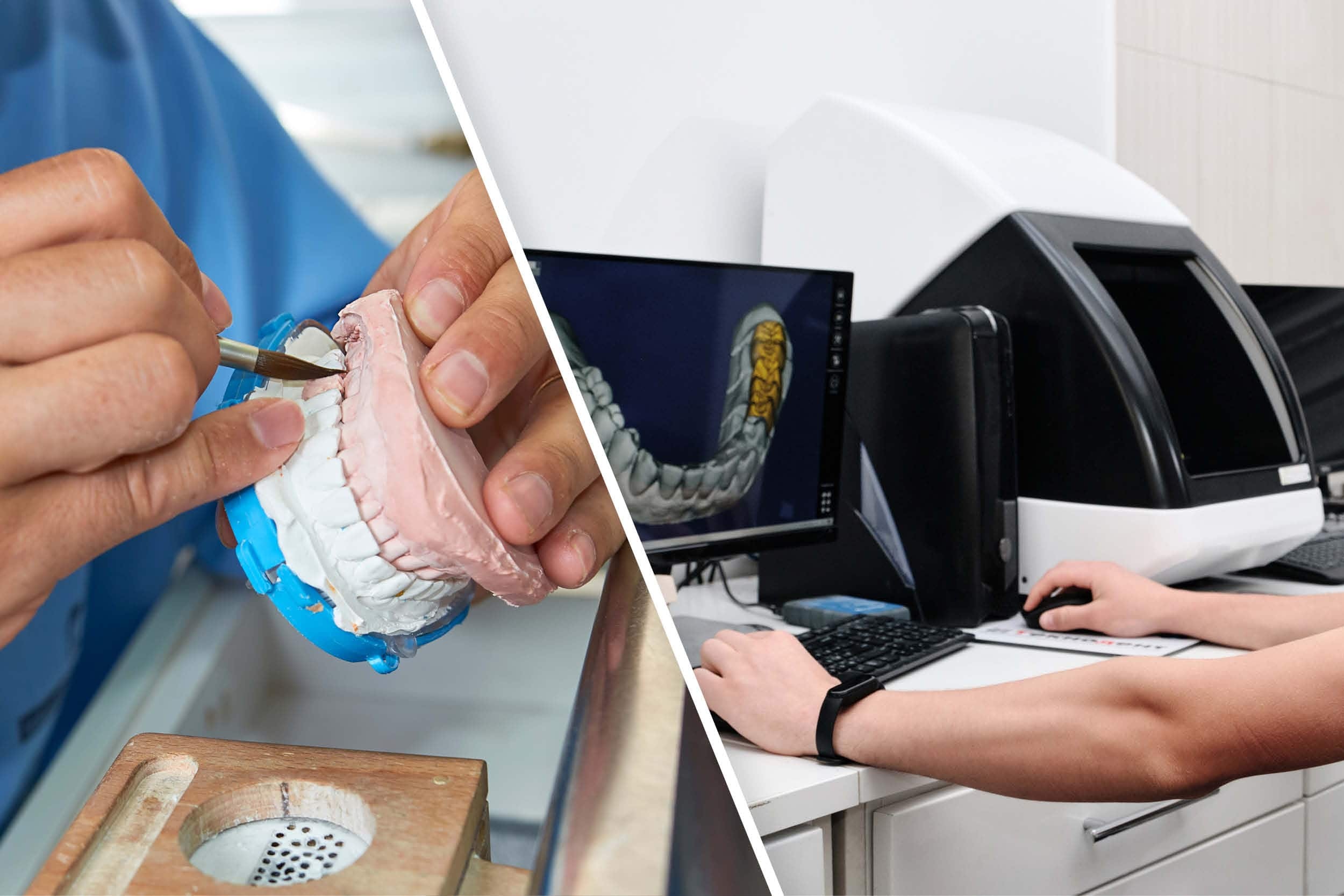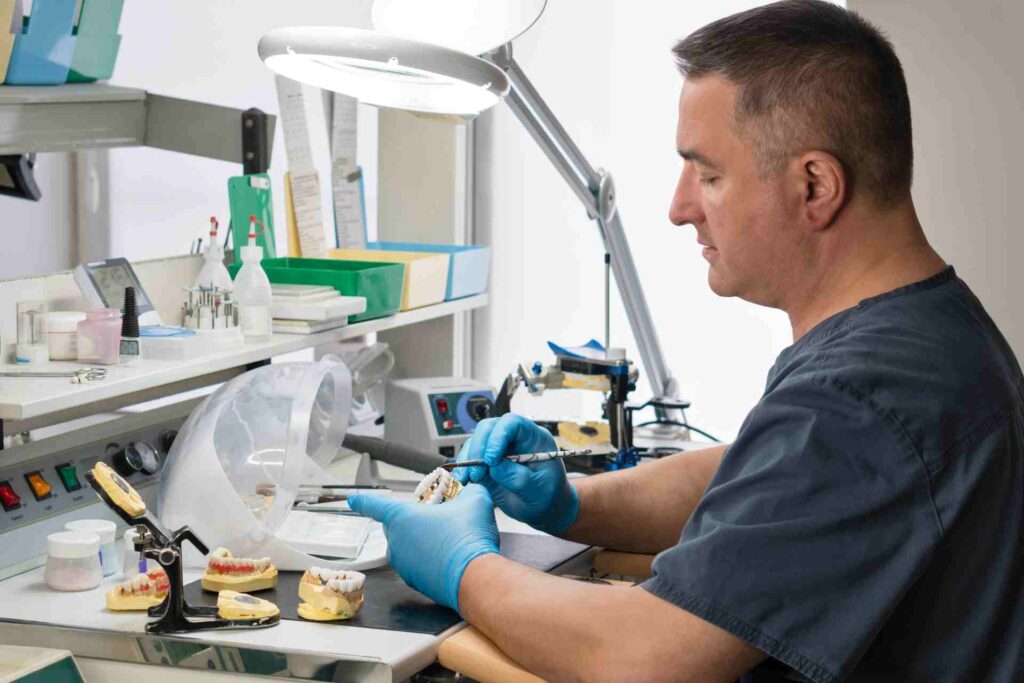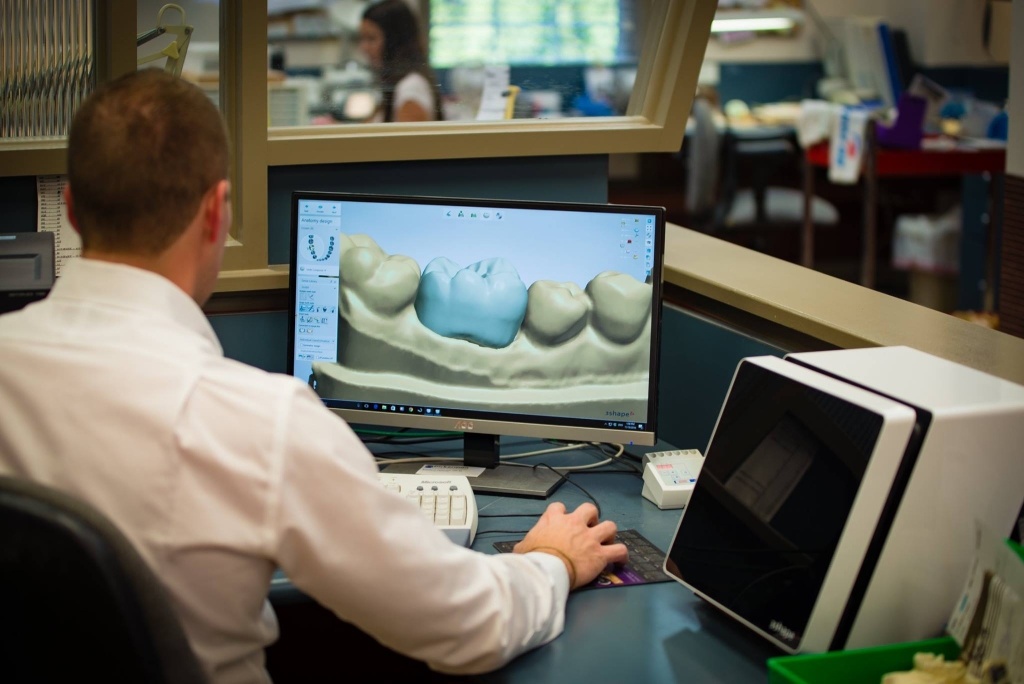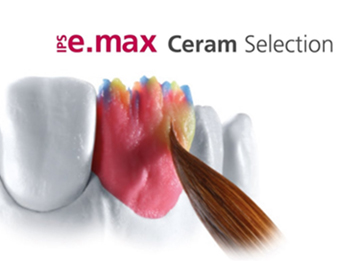
A dental laboratory serves as a vital, yet often unseen, element in the dental care process. It is here that skilled dental technicians, specializing in dental prosthetics, craft or repair dental devices as prescribed by dentists for their patients.
These labs produce a wide range of dental prostheses, including crowns, bridges, dentures, orthodontic devices, and more. The process begins when a dentist takes an impression of the patient’s teeth, in either physical or digital form, and sends it to the lab.
Upon receiving the impression, the dental technicians proceed to create the specified dental appliance by replicating the patient’s natural teeth in shape, size, and color. Initially, they develop a cast model from the impression that represents the patient’s oral structure, which the dental appliance will then match.

For crowns or bridges, the technician typically crafts a restoration using metal or porcelain, ensuring a perfect fit to the cast model. In the case of dentures, the process involves shaping a wax model from the cast, integrating artificial teeth, and then producing a plastic mold from this setup.
Orthodontic devices like braces, retainers, and aligners, which aim to adjust or maintain teeth positions, are also produced in dental labs. These devices can vary greatly in design complexity and materials, ranging from basic plastic or wire retainers to complex systems with springs and bands.
Beyond creation, dental labs also provide repair and alterations for dental appliances. They can fix fractures, replace missing teeth in dentures, or modify the appliance’s fit based on the dentist’s guidance.

Complex situations might involve the use of CAD (Computer-Aided Design) and CAM (Computer-Aided Manufacturing) technologies. Dental technicians can design a digital model of the restoration, which is then brought into physical form using a milling machine or 3D printer. The rise of digital dentistry has indeed transformed lab operations, enhancing precision and speeding up the process.
A crucial responsibility of a dental lab is to ensure that all dental devices are safe, effective, visually appealing, and comply with regulatory and industry standards. Depending on the location and regulations, labs may need to adhere to strict compliance and quality control protocols.
Moreover, dental laboratories maintain ongoing collaboration with dental practitioners. Discussions regarding individual cases are common to ensure optimal patient outcomes. This partnership supports the development of customized solutions tailored to each patient’s specific requirements.

In summary, dental labs are essential in providing precise, detailed, and personalized dental care solutions. The technicians blend artistry, science, and technology to enhance the oral health of numerous patients.




Leave a Reply